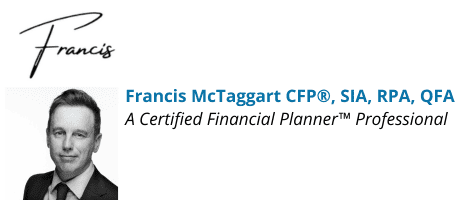Estate Planning: How often should you update your plan
Estate planning for the future is essential, especially when it comes to securing the well-being of your loved ones after you’re gone.
Your strategy is not a one-time task but a process that should evolve with your and your family’s needs and circumstances.
Let’s explore why regularly examining your estate planning and updating it when necessary is key to generational financial well-being.
How Often Should I Review My Estate Planning Strategy
Many people wonder, “How often should I update my estate plan?”
The general rule of thumb is at least every 3-5 years, if not more often.
We recommend reviewing your estate strategy when you review your entire financial plan, which is typically annually.
But more importantly, you should review your estate plan whenever you have a major life change.
Your estate planning is a comprehensive set of legal documents that outline your wishes regarding your assets, property distribution, healthcare preferences, and more.
However, life is unpredictable, and circumstances can change.
Without regular updates, your estate planning strategy may not reflect your current situation or wishes.
Major Life Events that Signal An Estate Plan Review
While everyone should review their estate planning regularly at different intervals, certain life events should prompt an immediate review of your estate strategy.
Here are some key events to consider:
Marriage or Divorce
When you get married, you’ll likely want to update your estate strategy to include your spouse as a beneficiary.
Conversely, divorce may necessitate removing an ex-spouse from your strategy.
Birth or Adoption of a Child
Welcoming a new child into your family means updating your strategy to include them as a beneficiary.
You’ll also want to appoint guardians if something were to happen to you and your partner.

Death of a Loved One
The passing of a spouse, child, or another beneficiary should prompt a review of your estate strategy to ensure assets are distributed according to your new wishes.
Change in Financial Status
Significant changes in your assets, whether through inheritance, investments, or property acquisitions, should trigger a review of your estate strategy.
Changes in Health
If you’re diagnosed with a serious illness or experience a decline in health, you should review and update your healthcare directives and powers of attorney.
Summary
The question of “How often should I update my estate plan?” comes down to a balance between regular reviews and responding to major life events.
While a general timeline of every 3-5 years is a good rule of thumb, life changes should always prompt a review of your estate planning.

Your strategy should be a reflection of your current circumstances, wishes, and the legal landscape.
By staying proactive and updating your estate strategy accordingly, you can ensure that your loved ones are taken care of and your legacy is protected.
Get in touch
Contact us and take the first steps to commence your estate planning.
Email us at info@fortitudefp.ie or click below to schedule an introductory call at our expense.
Why not visit our insights page.
A multitude of information on various financial subjects covering all aspects of saving, investing, financial planning, protection and pension advice.


Our blog posts are intended for information purposes only and should not be interpreted as financial advice.
You should always engage the services of a fully qualified financial planner before entering any financial contract.
To discuss engaging the services of Fortitude Financial Planning please email us at info@fortitudefp.ie.
Fortitude Financial Planning Ltd will not be held responsible for any actions taken as a result of reading these blog posts.


 Production
Production